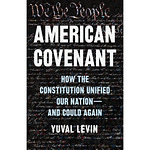Karen Swallow Prior is the author of multiple books, including On Reading Well: Finding the Good Life through Great Books. Her new book is called The Evangelical Imagination: How Stories, Images & Metaphors Created a Culture in Crisis. It is publishing next Tuesday, August 8!
She is a professor of English literature and a popular speaker and writer. Karen's new book argues that "so much ... that what evangelicals uncritically assume is 'biblical' turns out to be simply Victorian." She explains here why the Victorian age, in particular, has had such a formative impact on American Christianity.
The book unpacks how numerous major themes, ideas and emphases in American evangelicalism -- such as revival, conversion, rapture, improvement, sentimentality, and empire -- have their roots in the culture and the literature of 19th century Britain.
In this respect, Karen’s book is one of several in the past few years to make the the point that much of modern evangelicalism is a cultural product rather than something theological or “biblical.”
Karen is a spirited conversation partner and a really joyful champion of reading and writing and language, and she has been evolving herself over the past several years in her views of American evangelicalism and faith itself, and we talk about that as well here.
Karen really does come from inside evangelicalism. She's taught at Liberty University. She's tried extremely hard to be positive and affirming of as much as she can. But she talks here about how there is a tendency inside conservative Christianity to discourage difficult questions or criticism that breeds a "gullibility" that she says provides endless grist for the "evangelical industrial mill."
Karen also launched her own Substack this week, called The Priory. In her first post, she writes about how she has been “wounded” over the past decade from being “publicly slandered, harassed, and trolled by a handful of pastors in my denomination.” I hope at some point Karen writes about all of that in detail.
But she and I talk some about her own journey and evolution over the past few years, as she has become more comfortable being an “anomalous person.”
The Evangelical Imagination is out August 8 from Brazos Press.
Super Moon Summer
From the Associated Press:
The cosmos is offering up a double feature in August: a pair of supermoons culminating in a rare blue moon.
The last time two full supermoons graced the sky in the same month was in 2018. It won’t happen again until 2037, according to Italian astronomer Gianluca Masi, founder of the Virtual Telescope Project.
The first super moon was this past Tuesday, Aug. 1, the full Sturgeon moon. The second of the month will be on August 30, a full Blue Moon.
From the New York Times:
The second supermoon of this year — the Sturgeon Moon — left stargazers awed on Tuesday night, drawing large crowds in parts of Europe, the Americas and Asia, and once again piquing interest in the night sky.
Tuesday night’s celestial show was the second supermoon of the year. The first occurred in early July, drawing people outdoors in major cities like Istanbul and Los Angeles.
The next supermoon will be on Aug. 30, and because it is the second full moon this month, it will be known as a Blue Moon. It will also be the closest and brightest full supermoon of the year, according to The Old Farmer’s Almanac. Plus, Saturn will appear five degrees to the upper right of that moon and will swing clockwise around it through the evening, according to NASA.
The fourth and final supermoon of the year, which will appear in September, is sometimes called a Harvest Moon.


The (latest) (biggest) Trump Indictment
It’s enough to make you lose count. Former President Trump has been charged now in three criminal cases, and an indictment in a fourth case is expected any day. The New York Times has a helpful summary/overview of it all here.
This past Tuesday night, Special Counsel Jack Smith brought four charges against Trump for conspiring to “defraud the United States by using dishonesty, fraud, and deceit to impair, obstruct, and defeat the lawful federal government function by which the results of the presidential election are collected, counted, and certified by the federal government.” You can read the full indictment here with annotation or here in its original form.
The indictment summarizes:
The purpose of the conspiracy was to overturn the legitimate results of the 2020 presidential election by using knowingly false claims of election fraud to obstruct the federal government function by which those results are collected, counted, and certified.
Let’s start with this from Rick Hasen, director of the Safeguarding Democracy Project at UCLA Law School:
Forget hush money payments to porn stars hidden as business expenses. Forget showing off classified documents about Iran attack plans to visitors, and then ordering the pool guy to erase the security tapes revealing that he was still holding on to documents that he had promised to return. Forget even corrupt attempts to interfere with election results in Georgia in 2020.
The federal indictment just handed down by special counsel Jack Smith is not only the most important indictment by far of former President Donald Trump. It is perhaps the most important indictment ever handed down to safeguard American democracy and the rule of law in any U.S. court against anyone.
Trump’s corrupt intent was clear: He was repeatedly told that the election was not stolen, and he knew that no evidence supported his outrageous claims of ballot tampering. He nonetheless allegedly tried to pressure state legislators, state election officials, Department of Justice officials, and his own vice president to manipulate these arcane, complex election rules to turn himself from an election loser into an election winner. That’s the definition of election subversion.
A trial is the best chance to educate the American public, as the Jan. 6 House committee hearings did to some extent, about the actions Trump allegedly took to undermine American democracy and the rule of law. Constant publicity from the trial would give the American people in the middle of the election season a close look at the actions Trump took for his own personal benefit while putting lives and the country at risk. It, of course, also serves the goals of justice and of deterring Trump, or any future like-minded would-be authoritarian, from attempting any similar attack on American democracy ever again.
If Trump can run out the clock before conviction and be reelected, though, he can get rid of Jack Smith and appoint an attorney general who will do his bidding. He could even try to pardon himself from charges if elected in 2024 (a gambit that may or may not be legal). He could then sic his attorney general on political adversaries with prosecutions not grounded in any evidence, something he has repeatedly promised on the campaign trail.
It’s not hyperbole to say that the conduct of this prosecution will greatly influence whether the U.S. remains a thriving democracy after 2024.
That’s a pretty good overview. Hasen thinks there is a chance the trial could conclude before the 2024 election is over.
The Pence response
The response from Trump’s former vice president Mike Pence has drawn a lot of attention. Here’s what Pence said immediately after the indictment was released, in a series of tweets:
Today's indictment serves as an important reminder: anyone who puts himself over the Constitution should never be President of the United States.
I will have more to say about the government’s case after reviewing the indictment. The former president is entitled to the presumption of innocence but with this indictment, his candidacy means more talk about January 6th and more distractions.
As Americans, his candidacy means less attention paid to Joe Biden's disastrous economic policies afflicting millions across the United States and to the pattern of corruption with Hunter.
Our country is more important than one man. Our constitution is more important than any one man’s career. On January 6th, Former President Trump demanded that I choose between him and the Constitution. I chose the Constitution and I always will.
As your president, I will not yield an inch in defending America, our people, or our values, and I promise you: I will do so in a way consistent with my oath to the Constitution and the character and decency of the American people. We will restore a threshold of integrity and civility in public life so we can bring real solutions to the challenges plaguing our nation.
The next day, Wednesday, Pence continued to hammer his point about Trump putting himself above the Constitution. It’s worth noting that Pence’s first sentence in his first statement is that anyone who puts themselves above the Constitution should “never be President of the United States.”
Here’s what Pence said in Indianapolis on Wednesday:
"Sadly, the president was surrounded by a group of crackpot lawyers that kept telling him what his itching ears wanted to hear. ... The president ultimately continued to demand that I choose him over the Constitution."
This rhetoric will be familiar to many Christians who are regular Bible-readers. It’s borrowing language from the book of 2 Timothy, chapter 4, verse 3: "For the time will come when people will not put up with sound doctrine. Instead, to suit their own desires, they will gather around them a great number of teachers to say what their itching ears want to hear."
Pence then went on Fox News Wednesday and rejected claims from Trump and his defenders that they were merely trying to pause the certification of the election on January 6, 2021:
It wasn’t just that they asked for a pause. The president specifically asked me and his gaggle of crackpot lawyers asked me to literally reject votes … The American people deserve to know that President Trump and his advisers didn’t just ask me to pause. They asked me to reject votes, return votes, essentially to overturn the election.
CBS News journalist John Dickerson wrote that Pence’s actions on January 6, when he refused to bow to pressure to overturn the 2020 election results, despite a mob threatening to hang him banging on the doors, should be a litmus test for anyone running for president in 2024:
“At the first Republican debate, Mike Pence‘s competitors should be asked if they believe what he did on January 6th was heroic. Then, having recorded everyone’s answer, ask if they would’ve done the same thing.”
As Bill Barr, Trump’s former Attorney General, put it Wednesday: “At some point, trying to defend the indefensible really demeans you.”
The first debate is now less than three weeks away, on Aug. 23, in Milwaukee.
The Law
There have been conflicting opinions on the strength of the indictment in this case.
This indictment presents detailed and overwhelming allegations. It reflects sound legal and tactical decisions that should allow the government to move quickly and put on a powerful case. The most significant prosecution of Mr. Trump is off to a strong start.
That’s Randall D. Eliason, a former chief of the fraud and public corruption section at the U.S. Attorney’s Office for the District of Columbia.
But conservative columnist David French cautions that “the case is no slam dunk.”
So very much of the case depends on Trump’s state of mind … It becomes all-important for the prosecution to prove, beyond a reasonable doubt, that Trump knew he lost.
The Dispatch says the same.
But three Democratic legal experts argue something different:
Smith also avoids the most complicated aspects of having to prove Trump’s state of mind. The indictment alleges, and provides voluminous evidence suggesting, that Trump knew he lost the election. However, none of the statutes charged require a jury to determine this specifically. Instead, the requisite proof of criminal intent can be established simply by proving some, or all, of the … charges.
Over at Lawfare, they explain some of why the January 6 indictment case may move more quickly than the classified documents case:
Procedurally, it will be easier to litigate than the one concerning classified material at Mar-a-Lago. That case involves large volumes of classified discovery. This case will involve a large volume of discovery, but none of the relevant material is classified. While one can imagine a hundred complexities in this case, that fact alone will smoothe the path.
The second notable feature of the indictment is its almost overpowering factual density. The document is not long, but it contains an enormous amount of information. Each sentence has, one must presume witness testimony and documentary material behind it. It’s a powerful case, assuming Smith can prove it in court. And it’s one of which the former president should be very afraid.
How Will Republicans Respond?
Politico has a pretty good run down of 5 ways the GOP will try to defeat the indictments in the court of public opinion, which you can read here.
I wrote something similar, but focused on two GOP claims:
The federal government is and has been “weaponized” against Trump.
Biden is corrupt
And then I go back over the way that the Republican Party has been constructing this narrative for most of the last decade.
“Understanding the history of the last decade is crucial,” I write, “to assessing the credibility of both the indictments of Trump and the counter arguments made by Republicans against the indictments.”
None of this is happening in a vacuum. There is a ton of context that’s complicated and important to understand. I try to guide you, quickly, through the main points of the GOP counter-narrative and whether there is evidence to support their overall claims. You can read that piece here.
Where do we go from here?
Karl Rove, former adviser to President George W. Bush, at the Wall Street Journal:
[Trump’s] increasingly diverting his campaigning cash to lawyers. Mr. Trump’s legal bills will grow astronomically as multiple trials approach. It’s not clear he can fund his campaign and pay his lawyers, especially in a general election.
Mr. Trump’s fundraising problems are mitigated (for now) in the nomination contest by his almost 36-point lead over his closest GOP challenger, Florida Gov. Ron DeSantis, in the RealClearPolitics average. That’s an astonishing gap.
On the other hand, we’ve never had a major-party candidate campaign free on bail in four states, as former New Jersey Gov. Chris Christie put it. This is the strangest election imaginable. The Republican frontrunner has a record polling lead and an unprecedented legal situation that will only get worse. No one really knows how this will play out. We’re in a political alternative universe.
And then Pete Wehner for The Atlantic:
It doesn’t matter to these Republicans that their assertions have no basis in fact; for them, words have no intrinsic meaning. A party that once portrayed itself as a fierce critic of relativism and a fierce defender of objective truth now delights in debasing words in order to gain and maintain political power.
The trials of Donald Trump will deepen the divides in a country already brimming with political hate. The more threatened he feels, the more he will advocate political violence. We saw what he did when he was losing his presidency; imagine what he’ll do when he’s losing his freedom.
Here’s something we should prepare for: If Donald Trump thinks he’s going down, he’s going to try to burn down our institutions. He will mobilize his MAGA base, his Republican enablers, and the right-wing media to unleash yet more lies and conspiracy theories. He will portray himself as a martyr who is being persecuted for the sake of his supporters. He will claim that his legal troubles prove that the system is corrupt, and not him. Trump and his supporters will try to tamper with witnesses, intimidate jurors, and threaten public officials. And he will try to cause enough confusion, disorientation, discord, fear, and even violence to escape accountability yet again.
Donald Trump has already deeply wounded our nation. He’s perfectly willing to break it. It’s up to us to keep him from succeeding.
On a Lighter Note
Let’s end with some good news: my favorite band Wilco is releasing a new album!
Wilco have announced their new album Cousin with the lead single “Evicted.” The album—due out September 29 via dBpm—was produced by Cate Le Bon. It’s the first time since Sky Blue Sky that Wilco has used an outside producer.
I went back and looked at how many albums Wilco frontman Jeff Tweedy has put out, and give or take it’s about 29 albums over the course of 23 years with six different bands. He’s also got his third book coming out in November.
Here’s the list of albums and books:
Jeff Tweedy albums
No Depression (Uncle Tupelo) (1990)
Still Feel Gone (Uncle Tupelo) (1991)
March 16-20, 1992 (Uncle Tupelo) (1992)
Anodyne (Uncle Tupelo) (1993)
A.M. (1995)
Being There (1996)
Down by the Old Mainstream (Golden Smog) (1996)
Mermaid Avenue (1998)
Weird Tales (Golden Smog) (1998)
Summerteeth (1999)
Mermaid Avenue Vol II (2000)
Yankee Hotel Foxtrot (2002)
Loose Fur (Loose Fur) (2003)
A Ghost Is Born (2004)
Another Fine Day (Golden Smog) (2006)
Born Again in the USA (Loose Fur) (2006)
Sky Blue Sky (2007)
Wilco (The Album) (2009)
The Whole Love (2011)
Sukierae (Tweedy) (2014
Star Wars (2015)
Schmilco (2016)
Together at Last (Solo) (2017)
WARM (Solo) (2018)
WARMER (Solo) (2019)
Ode to Joy (2019)
Love Is the King (Solo) (2020)
Cruel Country (2022)
Cousin (2023)
Jeff Tweedy books:
Let's Go (So We Can Get Back): A Memoir of Recording and Discording with Wilco, Etc. (2019)
How to Write One Song: Loving the Things We Create and How They Love Us Back (2020)
World Within a Song: Music That Changed My Life and Life That Changed My Music - releasing Nov. 7, 2023
Here’s the first single off the new album:
Have a great weekend!
Jon














Share this post